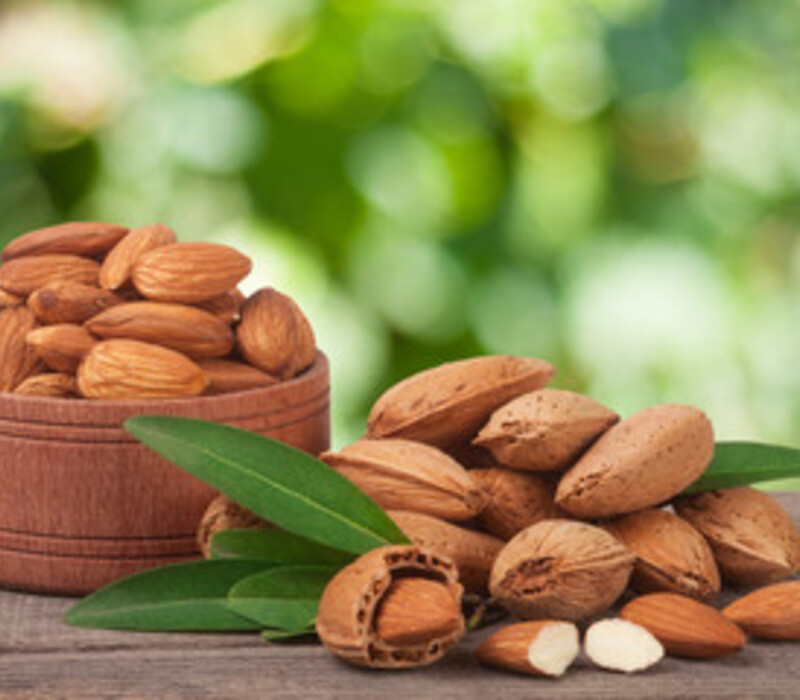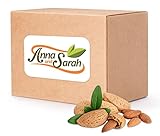Hey there! Have you ever considered what takes place in the almond shells once the nut has been consumed? They most simply end up inside the compost as well as trash.
But did you know that almond shells may also be used for other things? Here are a few facts about the almond shell that you might not be aware of.
Page Contents
What Exactly Are Almond Shells?
The almond seed’s tough exterior is called an almond shell. After that, the nut is collected and analyzed, and they are normally thrown.
What Happens to Almond Shells?
When almonds harvest, they are surrounded by a tough outer shell that must remove before the nut can eat or process. So, what happens to the almond shells that discard?
Almond shells can use for a variety of purposes. One common application is for a fuel source. The shells of almonds burn to produce heat and energy, which can utilize to power your house or company. This is a more sustainable and environmentally friendly approach to using the shells, which would otherwise throw as waste.
The almond shell can also use as landscaping and gardening mulch. They can help maintain soil moisture, limit weed development, and even give nutrients as they decompose. Almond shell also uses as a decorative element in gardens and as a natural floor for animal enclosures by certain individuals.
Finally, the ground-up almond shells can use as a filler material in a range of industrial applications. They frequently use in cleaning goods as an abrasive or as a component in plastic composites. Almond shells are so reused and put to use rather than being wasted as garbage.
What Material Makes Up Almond Shells?
The main component of the almond shells is lignocellulose, a complex blend of cellulose, hemicellulose, as well as lignin. They also have trace amounts of ash, protein, as well as other organic substances.
Can The Hulls of Almonds Be Used as Fuel?
Indeed, burning the shell of almonds can provide energy as well as heat. Several almonds’ processors power their operations with renewable energy derived from the shells of almonds.
Can You Feed Animals With Almond Shells?
Cattle can consume the shell of almond as just a source of protein and fiber. To achieve optimum nutrition, they must crush up as well as combined with other feed ingredients.
What Effect Do Almond Shells Have on The Environment?
Almond shell can take a long time to break down in the trash even though they are recyclable. Moreover, the cultivation of almonds uses a lot of water. As well as, if not handled effectively, can lead to surface water runoff damage.
I have written one more article on it.
Uses of Almond Shells
- Almond shells are a natural energy source since they can burn to create electricity as well as heat
- Almonds shells can use as animal feed, especially for poultry farms
- Almonds shells are a natural fertilizer as well as a soil conditioner that can add to the soil as a soil supplement
- Almonds shells could use as a natural mulch to help keep the soil moist as well as stop the growth of weeds
- Almond shell powder can use as an abrasive in a variety of cleaning as well as polishing goods, including toothpaste and soap
- Cleansing scrubs as well as face cleansers can both utilize ground nut shells as an exfoliating ingredient
- Almonds shells could utilize as jewelry, tiles, as well as other decorative accents in art as well as interior design
- Almonds shells are a natural packaging material that can use to lower waste production as well as protect the environment
- Almonds shells can use to create activated carbon, which has a variety of uses in industry as well as the environment
Pros
- Almond shells are a renewable energy source that can use to lessen reliance on fossil fuels as well as other non-renewable energy sources
- Natural material: As almonds shells are just a natural product with a wide range of uses, they are a better choice for the environment than synthetic materials
- Cost-effective: Almonds shells are a cost-effective solution for many uses because they are frequently available for free or at a cheap price
- Almond shells are a renewable energy source that can use to lessen reliance on fossil fuels as well as other non-renewable energy sources
Cons
- Impact on production: The cultivation of almonds uses a lot of water. As well as, if not effectively managed, can lead to soil erosion as well as water pollution
- Restricted accessibility: Although almonds shells could be a cheap choice, might not be easily accessible everywhere
- Handling risks: Almond shells could be sharp and hurt people if they do not handle carefully, which can be dangerous in some situations
- Restricted use: While having a wide variety of potential uses, almonds shells may not be appropriate for any applications due to their physical characteristics
Conclusion
In conclusion, Although the almond’s shell may appear to be a minor as well as an insignificant ingredient, it has a wide range of applications.
Almond shells could be a useful resource for a range of uses, including renewable energy, soil amendments, as well as cosmetics.
Despite several limitations, their eco-friendliness, affordability, as well as natural qualities make them a desirable choice for all those trying to promote sustainability as well as decrease waste.
FAQs
Almond hulls can indeed composite. When putting them in your compost bin, it is preferable to grind them up because they might take some time to decompose.
If not handled properly, almond shells can be sharp as well as cause damage. When handling almond shells, it is really important to put on gloves as well as take other safety precautions.








